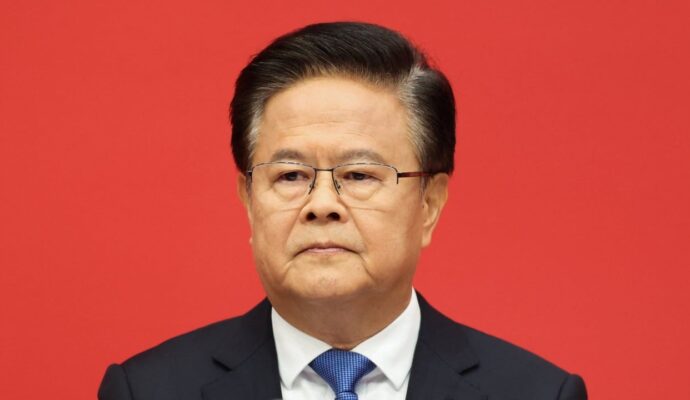A joint statement issued after a meeting between Philippine Secretary of Foreign Affairs Enrique Manalo and Indian External Affairs Minister Subrahmanyam Jaishankar in New Delhi last week said the two countries “underlined the need for peaceful settlement of disputes and for adherence to international law, especially the [UN Convention on the Law of the Sea] and the 2016 Arbitral Award on the South China Sea in this regard”.
The statement did not name China directly but the reference to the 2016 ruling is seen as a shift in Delhi’s position on the territorial disputes in the South China Sea – a thorny issue between China and its Southeast Asian neighbours.
By publicly favouring Manila’s claims, India is trying to “get involved” in South China Sea disputes as it moves closer to the US, which is involved in an intense competition with China, said Chen Xiangmiao, a research fellow with the National Institute for South China Sea Studies.
In 2016, a tribunal at the Permanent Court of Arbitration in The Hague ruled in favour of the Philippines, finding that China’s claims to historic and economic rights in most of the South China Sea had no legal basis.
Beijing declared that it would not participate in the arbitration, and it said it would not accept or comply with the court’s decision when the ruling was made. Instead, it insisted that territorial disputes should be resolved only between rival claimants.
“The arbitration ruling is very specific about the claims of China and the Philippines,” Chen said. “It appears that India is adjusting its stance on the South China Sea, especially on specific issues, and to align with the US.”
As India takes a tougher stance on the maritime dispute, it may also have an eye on its border stand-off with China, Chen added.
For a long time, India has avoided taking sides in South China Sea territorial disputes, which involve conflicting island and maritime claims by Brunei, China, Indonesia, Malaysia, the Philippines and Vietnam.
At the time of the ruling, Delhi did not take a clear position on the issue but called on the countries to resolve their disputes “through peaceful means”.
It has rejected Washington’s calls for joint patrols in the South China Sea and has been reluctant to confront China as part of the Quad, a four-way informal strategic group with a focus on the Indo-Pacific region that also includes the US, Japan and Australia.
“This could explain why the joint statements of the Quad usually go as far as calling for adherence to international laws, but the other three countries – Japan, the US and Australia – would lash out at China in their own joint statements after holding their trilateral meetings,” Chen said.
But that could be changing, Chen said, pointing out that one day before the meeting between the Indian and Philippine foreign ministers in New Delhi, Daniel Kritenbrink, the US assistant secretary of state for East Asian and Pacific affairs, told diplomats and academics at the Washington-based think tank Centre for Strategic and International Studies that the US expected a greater partnership with India in the South China Sea.
Earlier, the Indian Navy said it was gifting Vietnam, which has maintained close security ties with India since the Soviet era, an active duty missile corvette. Vietnam has been the most vocal critic of China’s claims in the strategic waterway, and tensions between Hanoi and Beijing over the contested waters have occasionally flared.


